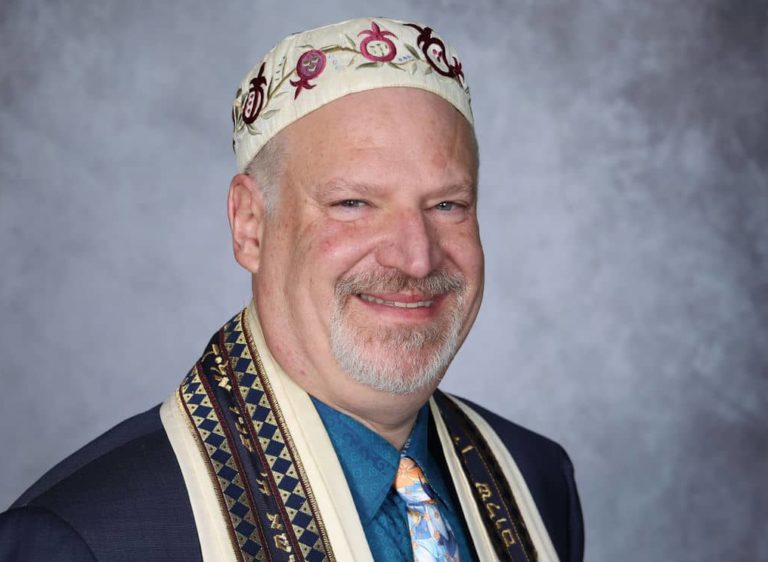By Rev. Marek Zabriskie
The masterful Italian poet Dante Alighieri set his famous trilogy of the spiritual journey in Florence in the year 1200 during Holy Week. Hence, this poem functions as an incredible lens to probe the mysteries of life and death, the spiritual journey, the work that Christ did upon the cross for our sake and shows us how we can draw closer to God.
It begins with perhaps the most famous line in all of literature – “In the middle of the journey of our life I found myself within a dark wood where the straightway was lost.” Who among us has reached midlife or beyond without venturing through some “dark wood” and becoming lost?
Christ Church Greenwich welcomes Professor Emeritus of Religion and Literature Peter Hawkins as our Theologian-in-Residence for four days starting this Sunday. Professor Hawkins, who is renowned at the Yale Divinity School, where he taught for decades will preach at the Palm Sunday services at 8 and 10 a.m. services at Christ Church.
Later that evening, the St. Cecelia Choir of Girls will perform the Stabat Mater, a beautiful 13th-century hymn composed to reflect upon the sorrows of Mary, Jesus’ mother, accompanied by violins, cello and continuo. This moving work was written by composer Pergolesi just before his death at the age of 26 from tuberculosis.
Afterwards, there will be a reception featuring Italian wines and cheeses in the Parish Hall, before Professor Hawkins gives his opening talk on Dante at 6:30 p.m. His talk will be followed by a visualization of the Divina Commedia as an inspiration to painters and sculptors from the Renaissance to the present day by Professor Page Knox, a widely acclaimed art historian in Greenwich who is on the staff at the Metropolitan Museum of Art and the Art History Department at Columbia University.
She will discuss twelve important works of art over the course of history influenced by Dante beginning with Botticelli and ending with Rauschenberg. This will be followed by a conversation between Hawkins and Knox and questions and answers with the audience. It is not to be missed.
The following three nights, Professor Hawkins will speak for an hour and offer questions as he examines on Monday – Dante’s Inferno: Life without God; on Tuesday – Dante’s Purgatorio: Life with God; and on Wednesday – Dante’s Paradiso: A Life of Love in God.
Monday and Tuesday’s talk in the Parish Hall will be preceded by a wine and cheese reception from 7-7:30 p.m. The talks will start at 7:30 p.m. On Wednesday, an Italian dinner will be served from 6:30-7:30 p.m. in the Parish Hall before Professor Hawkin’s final talk. Each night’s program will conclude with a brief service of Compline in the Parish Hall.
The Divina Commedia or Divine Comedy is widely considered as the pre-eminent work in Italian literature. Dante wrote his masterpiece while living in exile from his beloved Florence. He began the work in 1308 and completed it in 1320, one year before he died.
Over time, the Divina Commedia has become considered one of the greatest works of world literature. It arguably reveals more about the Christian view of the afterlife than any work of theology or biblical studies. Poetry and art take us beyond where reason and logic can venture.
Dante was a poet, writer, philosopher and theologian. He is known for the beauty and wisdom of his writings and for writing in the vernacular. Previous poetry was written in Latin, which had become inaccessible to most readers. Dante’s use of the Florentine dialect paved the way for a unified Italian language in the same way that Martin Luther’s translation of the Bible into a German dialect helped to create the German language.
Throughout the centuries, Dante’s imagery has inspired countless authors and artists such as Chaucer, Milton, Tennyson, Botticelli, Blake and Rodin, who modeled his famous “Gates of Hell” on imagery taken from Dante’s Inferno.
The Divina Commedia is divided into three separate books – Inferno, Purgatorio, and Paradiso. Most readers never go beyond the Inferno, which reads like a who’s who of the Italian Middle Ages and Renaissance. Dante names real names as he has God meting out eternal punishments and rewards based on various individual’s transgressions and saintliness in their earthly life.
Dante’s journey through Hell, Purgatory and Paradise represent the souls journey to God. The great mystical image is of an ascent up a mountain, whereby one purges oneself of sin, seeks illumination and finally unites one’s will with God’s will at the summit of the mountain.
For Dante, however, the journey to Hell is a descent into a frozen abyss. The fervent heart has ceased to beat in this frosty hell. Dante draws heavily on St. Augustine and medieval Roman Catholic theology and philosophy, especially Thomas Aquinas and his magnum opus known as the Summa Theologica. The Divina Commedia has sometimes been called the Summa in verse.
Throughout his spiritual journey, Dante requires a guide like a spiritual director to lead him forward. He has three guides in the Divina Commedia. The first is the Latin poet Virgil, who represents reason. Virgil guides Dante through the Inferno and most of Purgatorio.
Beatrice, a young woman whom Dante first saw when he was eight years old and became his idealized soulmate from afar serves as his guide the from remainder of the Purgatorio and most of Paradiso. She represents divine revelation.
Saint Bernard of Clairvaux, one of the most inspirational monastic leaders in history, then serves as Dante’s guide through the final cantos of the Paradiso. He represents contemplative mysticism. According to Dante, it is the contemplative priests and monks, not the bishops or cathedral deans, who occupy the highest realms of heaven.
To register for the program, please visit: www.christchurchgreenwich.org Participants are free to come to one, two, three or all of the talks and social gatherings.




